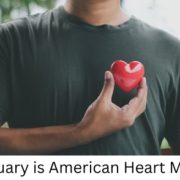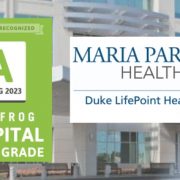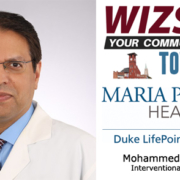Warren County Health Dept. Hosts “Healthy Hearts” Workshop At Perfecting Praise Ministries Saturday, Feb. 22
– information courtesy of Warren County government
The Warren County Health Department will host a second workshop in celebration of February Heart Health Month. The agency will partner with Perfecting Praise Ministries to conduct a “Healthy Hearts” Community Event on Saturday, Feb. 22, at the church located at 1216 US Highway 158 Business West, Norlina (Food Lion Shopping Center). The guest speaker will be Dr. Phil Mendys. Registration begins at 9:30 am. The workshop is from 10 a.m. – 1 p.m.
Register by Thursday, Feb. 20 by calling 252.257.6017 or 252.257.6012. The health department will offer free health screenings. A light lunch will be provided.
Heart disease is the leading cause of death for both men and women. The health department joins the American Heart Association in raising awareness about cardiovascular health and preventing heart disease. The three-pronged focus is to 1) educate communities about heart disease and stroke; 2) share effective strategies to enhance heart health; and 3) learn steps that you can take to save lives such as Hands-Only CPR from Warren County EMS.
In addition, participants will also get information on other services and community resources.
Did you know?
- Infants and children need CPR including breaths.
- More than 23,000 children experience cardiac arrest outside of the hospital each year. 40 percent are related to sports. Nearly 20 percent are infants.
Join the community of lifesavers and be ready to step up for a loved one, a neighbor, friend or co-worker.




